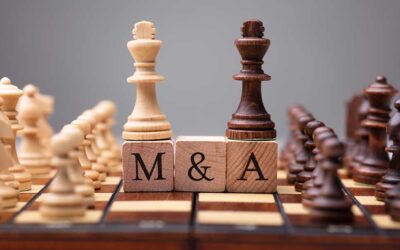In corporate business, mergers and acquisitions (M&A) have always driven growth, expansion, and increased shareholder value. Over the years, we’ve witnessed colossal deals that reshaped entire industries, influenced global markets, and signaled shifts in economic paradigms. Let’s delve into some of the most significant M&As in history.
1. Vodafone and Mannesmann (2000):
Value: $180 Billion
At the turn of the millennium, Vodafone, a British telecommunications giant, acquired Mannesmann, a German telecom company, in what was then the largest takeover ever. This deal was particularly noteworthy because it marked the climax of a hostile bid by Vodafone, overcoming significant resistance from Mannesmann’s management. The acquisition positioned Vodafone as the world’s largest mobile operator at the time.
2. AOL and Time Warner (2000):
Value: $165 Billion
In a deal that would become infamous as one of the most unsuccessful M&As ever, American Online (AOL) and Time Warner merged in the early days of the new millennium. Heralded as a fusion of new media with old, the partnership intended to conquer the emerging digital landscape. Unfortunately, the deal didn’t live up to expectations, marred by cultural clashes and a dot-com bust. The two companies eventually split in 2009.
3. Anheuser-Busch InBev and SABMiller (2016):
Value: $107 Billion
In a move that shook the beverage industry, two of the world’s biggest brewers, Anheuser-Busch InBev and SABMiller, merged in 2016. This deal allowed AB InBev to expand its footprint in Africa and other markets significantly. As part of the agreement to appease regulators, SABMiller divested its US business, including its interest in the MillerCoors beer company.
4. Exxon and Mobil (1999):
Value: $81 Billion
Two former arch-rivals, borne from the breakup of John D. Rockefeller’s Standard Oil monopoly in the early 20th century, came together in 1999 in a mammoth deal. This merger created ExxonMobil, which is today one of the world’s largest publicly traded oil companies. This deal was a testament to the energy sector’s changing dynamics and foreshadowed more industry consolidations.
5. Pfizer and Allergan (2016):
Value: $160 Billion
Though it ultimately fell through due to regulatory issues and tax inversion concerns, Pfizer’s intended merger with Allergan would have been among the largest ever. It would have created the world’s biggest drug company. The deal’s collapse underscores the complexities and potential pitfalls of giant M&A moves, especially in heavily regulated sectors like pharmaceuticals.
Impact and Considerations
Mega M&As, like the ones mentioned, often capture headlines because of their sheer scale and the ripple effects they generate across industries. However, their outcomes can be unpredictable. While some mergers lead to increased efficiencies, improved market shares, and better shareholder returns, others might face integration issues, regulatory hurdles, or cultural mismatches.
Economic Implications: Large-scale mergers can sometimes reshape the economic landscape. They can lead to monopolies or reduce competition in specific sectors, prompting concerns from antitrust regulators.
Operational Challenges: Integrating operations, systems, and corporate cultures can be daunting. Failed integrations can erode the anticipated benefits of the merger.
Stakeholder Reactions: Employees, shareholders, and customers react differently to mergers. While shareholders might see the potential for increased value, employees might fear layoffs or cultural shifts.
Strategic Alignment: For any merger to succeed, there needs to be a clear strategic rationale behind the decision. Without this, even the most lucrative-looking deals can flounder.
It’s Complex
The history of M&As provides a fascinating lens through which we can understand global business trends, sectoral shifts, and corporate strategies. While the mega-deals grab the spotlight, it’s essential to understand the nuances and challenges inherent in these complex transactions. As the business landscape evolves, it remains to be seen what the next wave of significant mergers will bring and how they will shape the future of global commerce.




